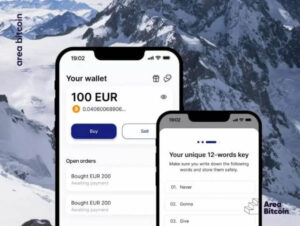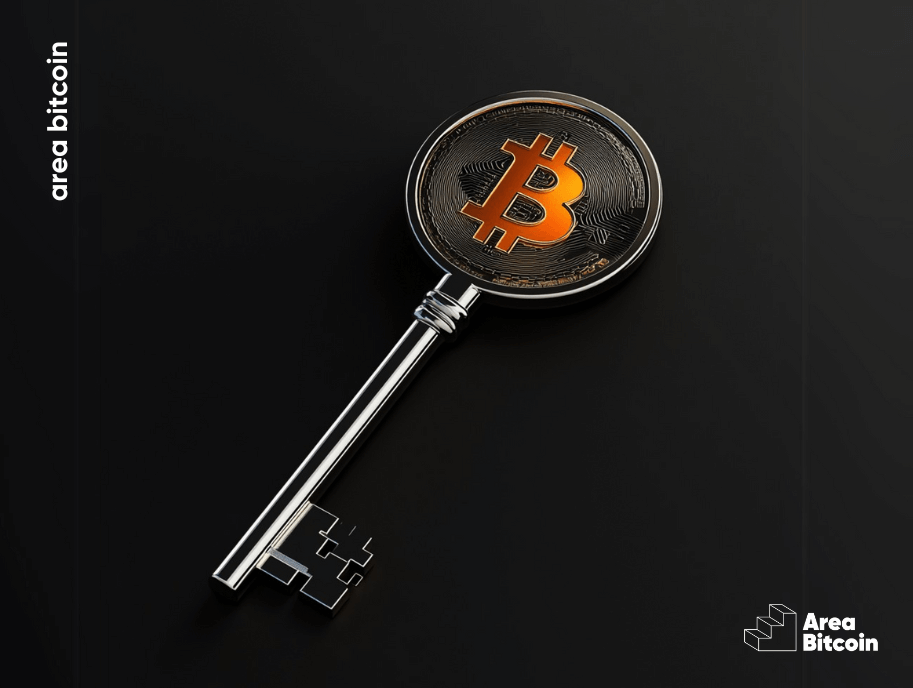Bitcoin has a limited number of units that can be created, but are all these created coins still available? How many bitcoins are lost in the blockchain?
If you’re already familiar with the Bitcoin universe, you probably know that its maximum issuance is limited to 21 million units. This feature is not just a technicality; it is the essence that makes Bitcoin one of the scarcest forms of money ever created.
But here’s a fact that makes this scarcity even more impressive: a significant part of those 21 million bitcoins is, in practice, lost forever.
This “loss” happens for various reasons, but mainly due to users’ lack of attention when storing their bitcoin.
So while on the one hand Bitcoin allows you total sovereignty – after all, you don’t have to rely on banks or intermediaries to store your money –, on the other hand, it requires extra attention and care. Unfortunately, many users learn this the hard way.
So in this article we’re going to discuss how many bitcoins might be lost forever, how they end up getting lost and what are the ways to avoid this.
Let’s check it out!
What are lost bitcoins?
Lost bitcoins are coins that, despite still existing on the blockchain, are forever inaccessible due to situations such as the loss of private keys, errors in wallet storage or the death of the owner without sharing access.
So, unlike paper money, which can be misplaced, torn or even found on the street (who hasn’t, right? Pure nostalgia!), Bitcoin is digital. That means that it doesn’t take up physical space, so a bitcoin can’t just disappear or end up “lost from sight“.
Bitcoin exists as a record in a digital space. In other words, it is code. It is accessed via private keys, also known as seeds.
They function as a password that guarantees ownership and control over the bitcoins associated with a given public address.
So when you send your bitcoin to someone else, you’re basically transferring that control. Whoever receives bitcoin needs the private key associated with the public address that received the transaction in order to be able to spend it in the future.
Now comes the most important point: if you lose your private key, you also lose access to your bitcoins.
No, they don’t disappear from the network, but they do become inaccessible, as if they were locked in a digital safe without a key. That’s why it’s more accurate to say that bitcoins don’t simply “get lost“, but become inaccessible forever.
How do bitcoins become inaccessible?
Bitcoins can become inaccessible through loss of the private key, human error, damaged or lost hardware, and death.
So, as you’ve seen, there are several reasons why bitcoins can become inaccessible. Now we’ll explain each of them:
- Loss of private key: As we’ve just discussed, this is the most common cause. If you don’t back up your private key or recovery phrase and lose access, the bitcoins associated with your wallet can never be moved again.
- Human error: Sending bitcoin to the wrong or invalid address is another way of making them unreachable. A little carelessness in “copying and pasting” addresses can be fatal.
- Damaged or lost hardware: Many bitcoins are trapped in hard drives or devices that have been discarded or damaged, as well as old laptops from pioneering miners or cell phones that were used to store private keys.
- Death without succession planning: If the owner of a wallet dies without sharing the private keys or leaving clear instructions for heirship, their bitcoin could become inaccessible forever.
How many Bitcoins are lost?
It is estimated that between 3.7 and 7.8 million bitcoins are currently lost. These numbers include bitcoins that are inaccessible due to loss of private keys and those that have not been moved for a long, long time.
As we have seen throughout the article, Bitcoin is a unique asset due to its scarcity: only 21 million units can exist. However, not all of these units are currently accessible.
Many bitcoins are already “lost” – or at least inaccessible for an indefinite period of time.
The question is: how many exactly? Estimates vary widely depending on the methodology used.
Popular estimates of lost bitcoins
Different experts and on-chain analysis companies offer varying figures on the number of bitcoins lost.
Let’s explore some of the main estimates:
- Chainalysis: Chainalysis, a reference in on-chain analysis, reports that approximately 3.7 million bitcoins are lost. This figure is based on data such as old addresses with no movement. However, the company recognizes that not all of these bitcoins are in fact inaccessible, as many users keep their coins idle in cold wallets for long periods.
- Glassnode: Glassnode, another blockchain analysis company, presents a more impressive figure: around 7.8 million bitcoins could be currently lost. This amount represents almost 37% of the total Bitcoin issuance limit! However, this figure could include both hopelessly inaccessible bitcoins and those simply stored by convinced holders.
- Timothy Peterson – Cane Island: Timothy Peterson, an analyst at Cane Island, estimates that 6 million bitcoins are lost due to the loss of private keys. Its calculation is based on human behavior patterns and the number of bitcoins never moved.

What impact does this have on the Bitcoin ecosystem?
Whatever the exact amount, it is undeniable that lost bitcoins increase the scarcity of the currency. This makes every unit available for circulation even more valuable.
Unaffordable bitcoins represent a floor for real supply, which, combined with growing demand, tends to put upward pressure on prices in the long term.
This reality reflects the well-known mantra among bitcoiners: “Not your keys, not your coins“.
Self-custody provides sovereignty, but requires responsibility. The loss of private keys is irreversible and is both a benefit and a challenge.
But then, what can you do to keep your bitcoins safe and not lose your precious satoshi balance?
Best practices to avoid losing access to your bitcoin
Here’s a list of tips on what you should do to protect your bitcoin and not risk losing it.
- Make regular backups: create backup copies of your wallet in multiple secure locations. Also, make sure you include all the necessary information, such as the private key and/or the seed phrase.
- Store your seeds in a safe place: as we’ve already mentioned, the seed (private key) is essential for recovering your wallet if the original device is lost or damaged. Therefore, use safe means, such as fireproof safes or engravings on metal plates, to store it.
- Use hardware wallets: to avoid online attacks, it is recommended and safer to store your bitcoin in hardware wallets, which keep your private keys offline.
- Educate yourself about transactions: before sending any bitcoins, carefully check the recipient’s address and confirm the details of the transaction. Tools such as QR codes can be useful to avoid typing errors.
- Do succession planning: document how to access your bitcoins in the event of an emergency or death. Include clear instructions for trusted family members or use custody services that offer specific solutions for succession planning.
- Don’t store your bitcoin on exchanges: although exchanges are practical, they are frequent targets for hackers; also, many have gone (or might go) bankrupt. So always (always, really!) transfer your balances to your own cold wallet.
Conclusion
Reflecting on lost bitcoins teaches us some valuable lessons. More important than the exact number of inaccessible coins is the message we can learn from this: the importance of secure self-custody and education about Bitcoin.
Having control over your private keys is fundamental, but this requires the responsibility to protect them properly.
Besides, sharing this knowledge with family and loved ones is essential to ensure that your coins are still accessible in the future. After all, what could be more frustrating than accumulating satoshis and losing them due to lack of planning?
On the other hand, lost bitcoins do not weaken Bitcoin as a system. On the contrary, they reinforce its scarcity, making each unit even more valuable over time.
Small fractions of Bitcoin today can turn into significant assets in the future, precisely because the supply is limited and partially inaccessible.
So protecting and valuing each satoshi is not only a smart choice, but a crucial step towards financial sovereignty.
The real lesson is clear: take care of what’s yours, educate those you love and enjoy Bitcoin’s power as a one-of-a-kind store of value.
I hope that you enjoyed this article.
Until next time, and OPT OUT!
Share on your social networks:

Founder of Area Bitcoin, one of the largest Bitcoin education projects in the world, she is a marketer, passionate about technology, and a full-time hands-on professional. She has participated in major Bitcoin conferences such as Adopting Bitcoin, Satsconf, Surfin Bitcoin, and Bitcoin Conference.
Did you like this article? Consider buying us a cup of coffee so that we can keep writing new content! ☕







